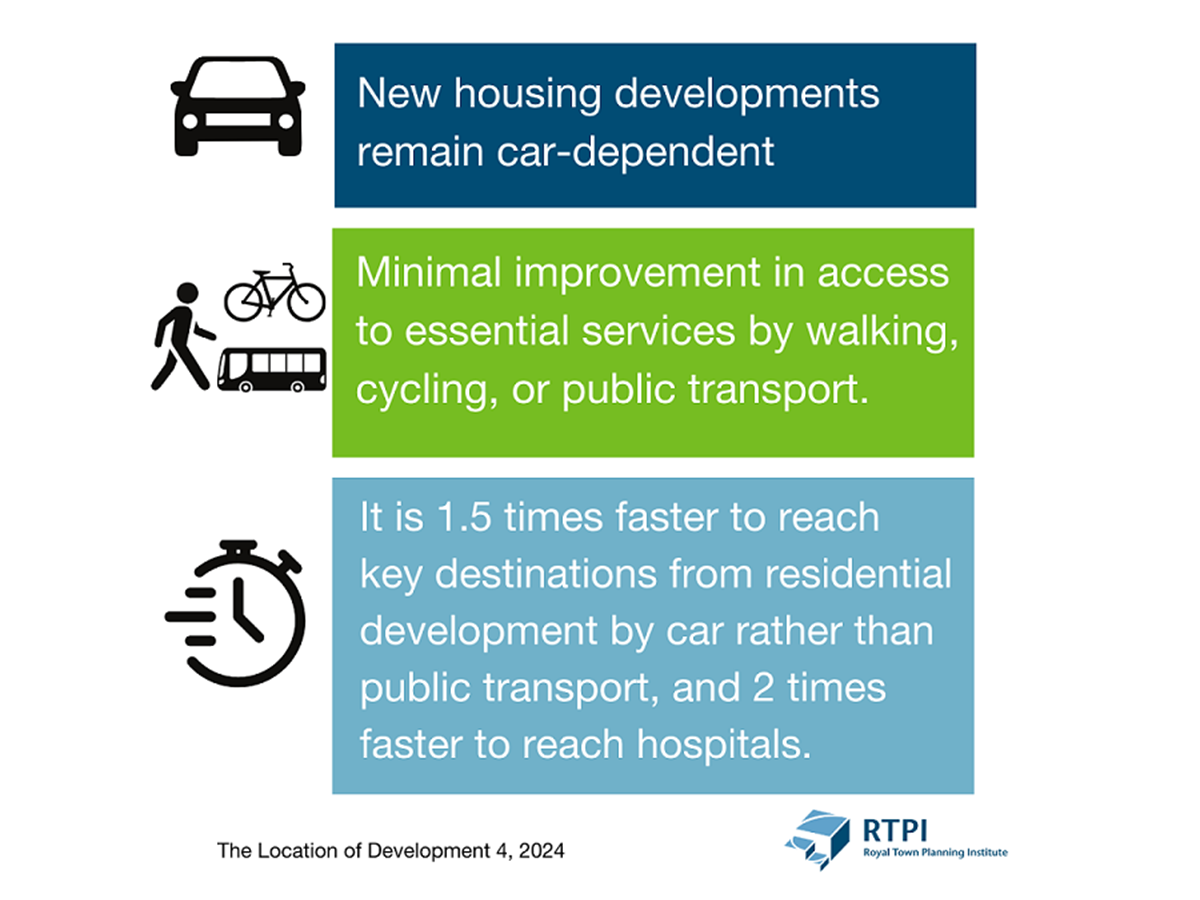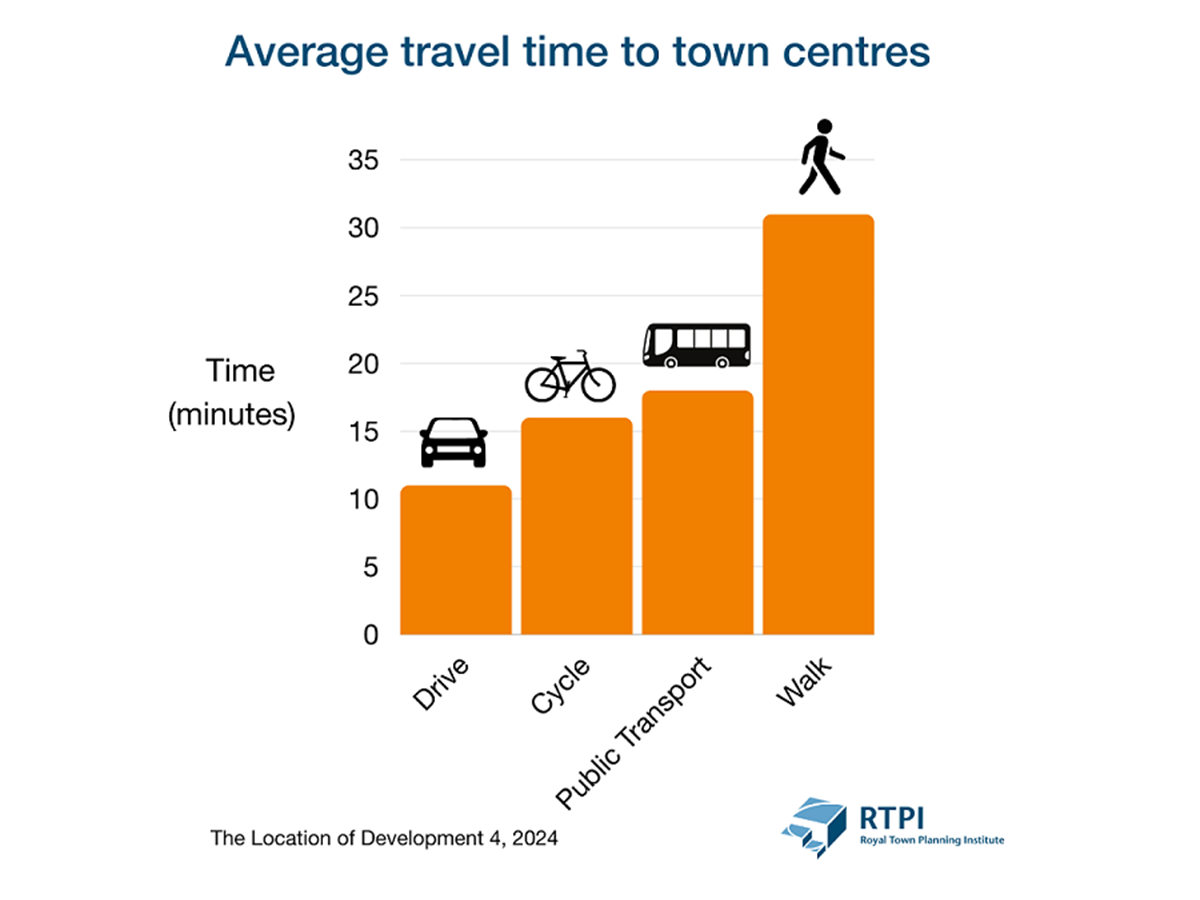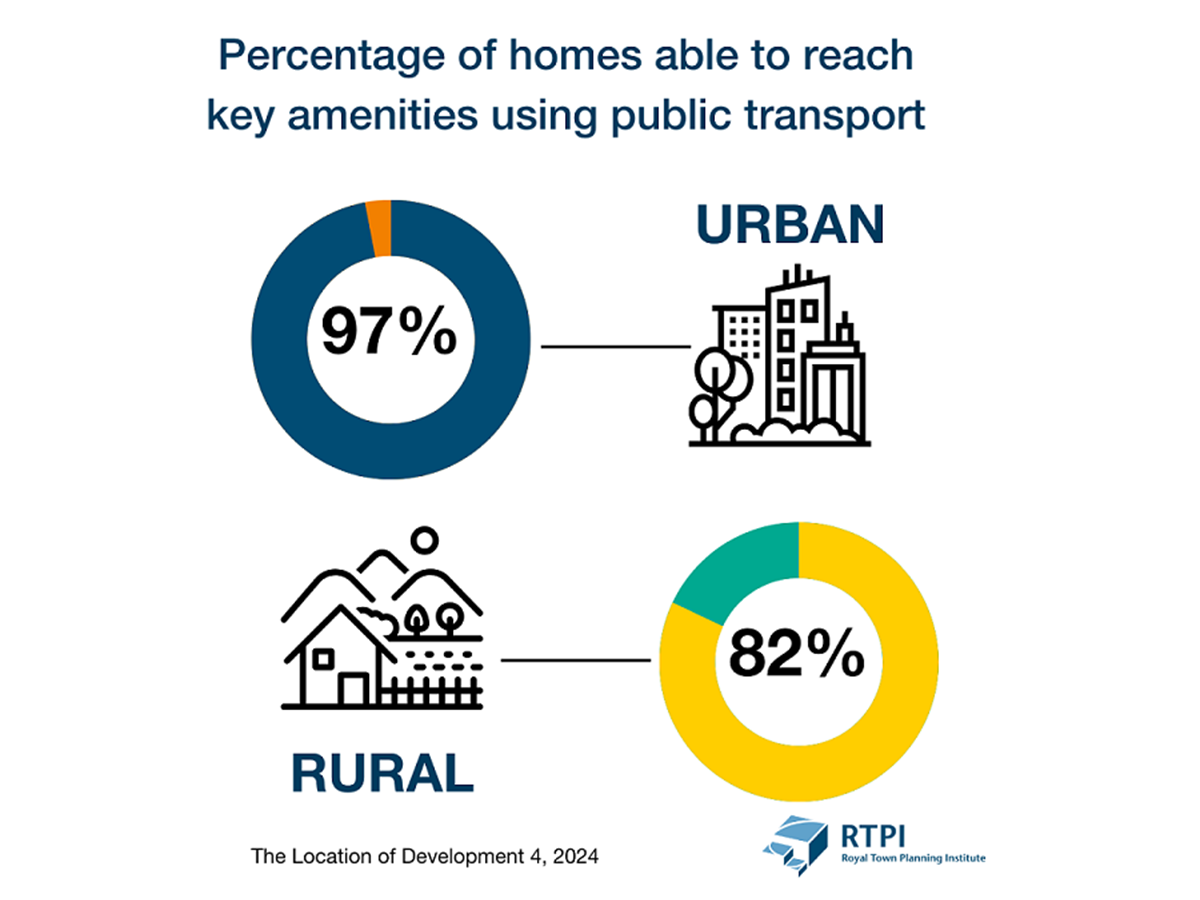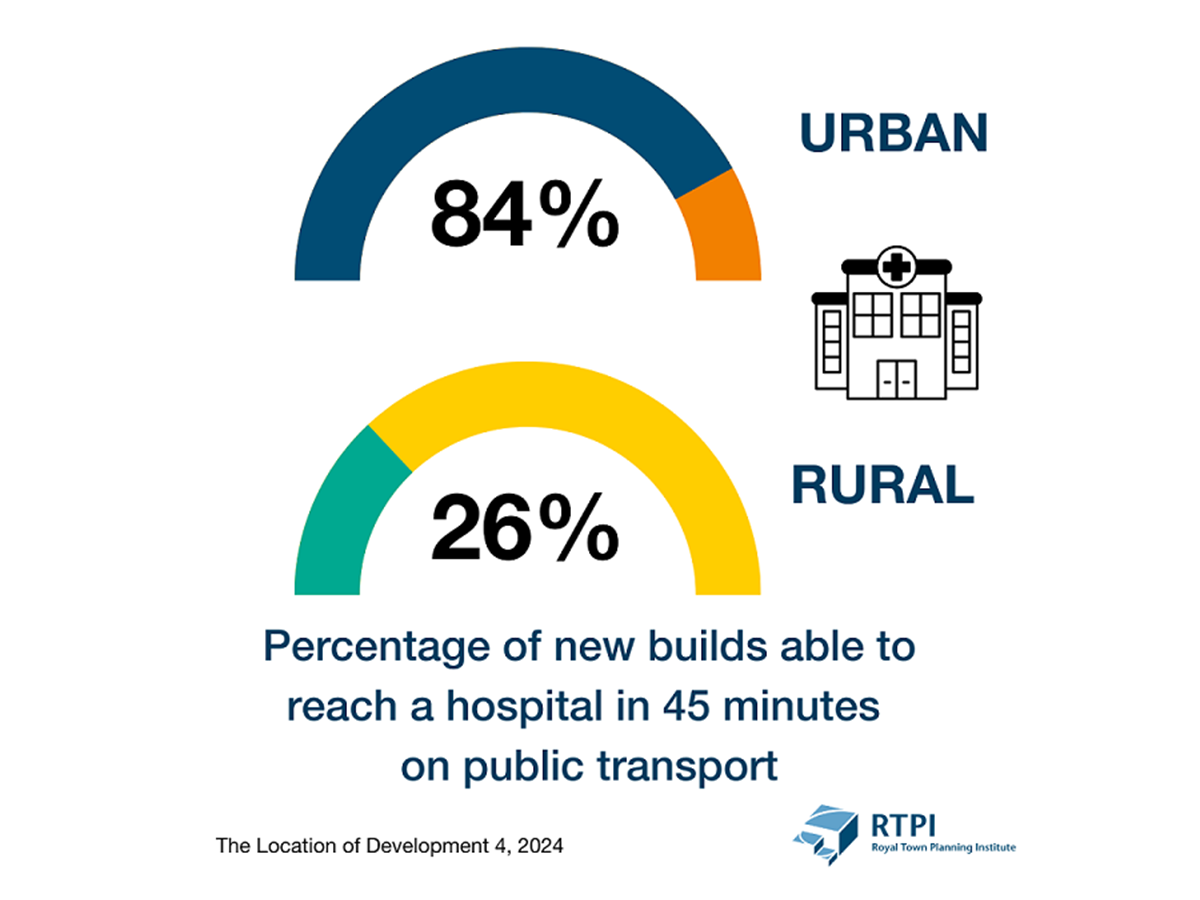A joint research report by the Royal Town Planning Institute (RTPI) and LandTech highlights a decade of missed opportunities in achieving sustainable housing.
The report, The Location of Development 4, reveals that new housing developments remain car-dependent, with minimal improvement in access to essential services by walking, cycling, or public transport.
An analysis of the last decade under the previous NPPF, the report found that, despite its focus on sustainable development, accessibility from newly approved homes has stagnated from 2012 to 2021.
Public transport continues to trail behind car travel, with journeys taking, on average, 1.5 times longer than by car. While 96% of new homes can reach a town centre within a 20-minute drive, only 66% have the same access using public transport and 47% within a 20-minute walk.


Victoria Hills, Chief Executive of the RTPI, said: “It is essential that planning policies truly serve communities by creating environments that support health and sustainability. Planning should work for the people it impacts, ensuring communities flourish in healthy, well-connected places.
"To avoid repeating the mistakes of the past decade, the new NPPF must prioritise housing development in areas that reduce car reliance, bridge regional accessibility gaps, and support genuinely sustainable, vibrant communities. The time for policymakers to act is now."
Harry Quartermain, Head of Research at LandTech, said: “Having accurate and reliable data in our planning system means that we can see the impact that our placemaking decisions have on the people that do, and will, live in these places.
“As the planning system evolves it is vital that we build in efficiencies to allow our planners to do more with the resources that are available. We do this by building-in consistent and reliable data points, and then harnessing these data to make robust and predictable decisions. As the saying goes, ‘you can’t manage what you can’t measure’.”





